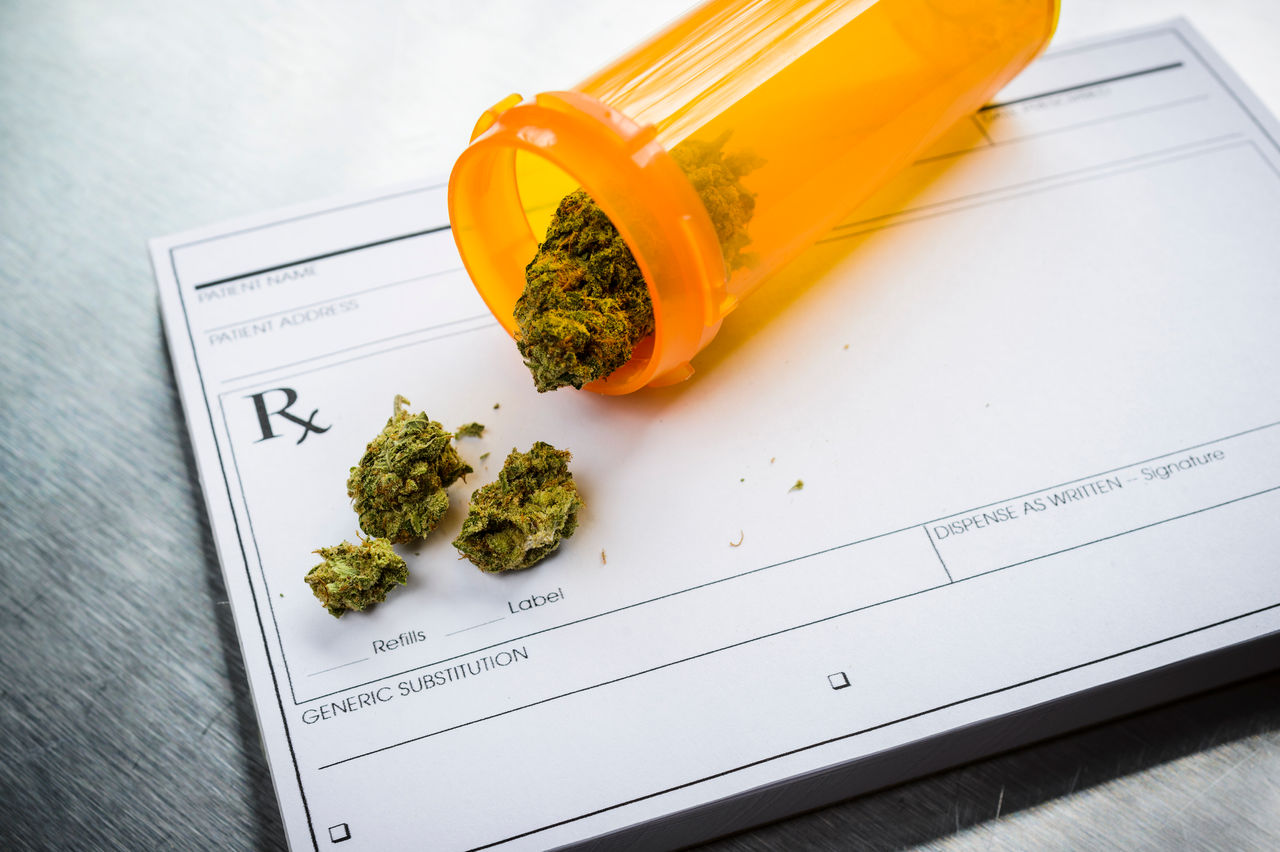Shedding Light on What Medical Cannabis Can Cure: an In-Depth Evaluation of Its Healing Properties
In recent years, there has actually been an expanding interest in the therapeutic capacity of clinical marijuana. While anecdotal evidence abounds, a thorough assessment of the clinical information regarding the efficiency of medical marijuana in dealing with these problems is warranted.
Chronic Pain Administration
Persistent discomfort monitoring continues to be an essential facet of clinical treatment, demanding a thorough method for efficient therapy. Over the last few years, clinical cannabis has arised as a possible healing alternative for people experiencing chronic discomfort problems. The endocannabinoid system, which plays a vital function hurting modulation, has been targeted by cannabis-based therapies to minimize symptoms and improve lifestyle for individuals.

Moreover, clinical cannabis offers a promising alternative for individuals that experience excruciating side results from traditional pain medicines. Its capability to address pain with a various system makes it an important addition to the toolbox of treatments available for chronic discomfort management.
Epilepsy Treatment Potential
Clinical marijuana has actually revealed appealing possibility in the treatment of epilepsy, offering a novel healing approach for taking care of seizures in patients. Epilepsy is a neurological condition defined by recurring seizures, influencing people of all ages. Conventional treatments for epilepsy consist of antiepileptic drugs, however these medications might not work for all patients and can have considerable negative effects.
Research study on making use of medical marijuana for epilepsy has revealed motivating outcomes. Cannabidiol (CBD), a non-psychoactive substance located in marijuana, has actually been particularly highlighted for its anticonvulsant buildings. Research studies have actually shown that CBD can lower the frequency and severity of seizures in clients with treatment-resistant kinds of epilepsy, such as Dravet syndrome and Lennox-Gastaut disorder.
In Addition, the FDA has actually accepted a CBD-based medicine, Epidiolex, for the therapy of seizures associated with these extreme kinds of epilepsy. This landmark emphasizes the growing recognition of medical marijuana as an important restorative choice for handling epilepsy and offers expect clients who have actually not reacted well to standard treatments.
Nausea Or Vomiting Alleviation Advantages
The reduction of nausea or vomiting with using cannabis has been increasingly acknowledged for its therapeutic benefits in various medical conditions. Queasiness and vomiting prevail symptoms experienced by patients undergoing chemotherapy, those with food poisonings, and people with persistent discomfort conditions. Medical marijuana, with its active compounds such as THC and CBD, has revealed pledge in providing remedy for nausea.
In addition, medical cannabis provides an all-natural alternative for individuals that do not respond well to standard anti-nausea medicines or who experience browse around this site extreme negative effects from these medications. People undergoing radiation treatment, in certain, have actually reported significant renovations in their lifestyle when utilizing marijuana to take care of queasiness. As study in this area remains to grow, clinical cannabis is progressively being considered as an important option for nausea or vomiting relief in numerous clinical settings.
Anxiousness Decrease Impacts
Studies have actually shown the possibility of cannabis in reducing stress and anxiety symptoms via its communication with the endocannabinoid system. The endocannabinoid system plays a critical function in regulating feelings, including anxiousness, by preserving homeostasis in the body. Cannabinoids in marijuana, such as THC and CBD, connect with the endocannabinoid receptors in the brain, particularly the CB1 and CB2 receptors, to modulate anxiety-related responses.

Clients with problems like generalized anxiousness condition (GAD), social stress and anxiety disorder, and trauma (PTSD) may gain from the anxiolytic residential properties of marijuana (Medical Marijuana near me). Nonetheless, more study is required to figure out optimum dosages, delivery techniques, and long-term effects on anxiousness administration.
Possible for Swelling Control
With its known anti-inflammatory buildings, cannabis has actually shown pledge in possibly controlling swelling within the body. Swelling is the body's all-natural reaction to injury or infection, but when it becomes chronic, it can add to various conditions such as joint inflammation, inflammatory digestive tract disease, and also heart problem. Research study suggests that the cannabinoids located in cannabis, such as THC and CBD, can assist minimize and manage the immune feedback swelling.
Researches have actually shown that cannabis can engage with the endocannabinoid system, which a knockout post plays an important duty in regulating swelling. By targeting the cannabinoid receptors, marijuana compounds can modulate the immune reaction, leading to a decline in swelling degrees. This makes marijuana a potential candidate for handling inflammatory conditions where traditional treatments have dropped brief.
In addition, cannabis-derived products like CBD oil have acquired popularity for their anti-inflammatory buildings, with many individuals using them as a natural solution for conditions connected with swelling. While even more research is required to totally recognize the mechanisms behind cannabis's anti-inflammatory results, existing searchings for show promising outcomes for the possible use medical cannabis in managing swelling.
Verdict
To conclude, medical marijuana has shown encouraging therapeutic residential or commercial properties in taking care of persistent discomfort, dealing with epilepsy, relieving queasiness, lowering anxiety, and controlling swelling. Its prospective advantages in various clinical problems highlight the relevance of further research and exploration right into its medical use. The proof recommends that clinical cannabis can be a valuable choice therapy alternative for patients seeking relief from a series of symptoms and problems.
In recent years, clinical marijuana has emerged as a possible restorative alternative for people experiencing from persistent discomfort conditions.Medical marijuana has shown appealing possibility in the therapy of epilepsy, offering a novel restorative strategy for handling seizures in clients. As study in this area continues to expand, clinical cannabis is increasingly being considered as a valuable alternative for queasiness alleviation in numerous medical settings.
In final thought, medical marijuana has actually revealed promising therapeutic residential or commercial properties in handling chronic pain, dealing with epilepsy, easing nausea or vomiting, reducing anxiety, and controlling inflammation. The evidence recommends that medical cannabis can be an important option treatment alternative for patients looking for alleviation from an array of signs and problems.